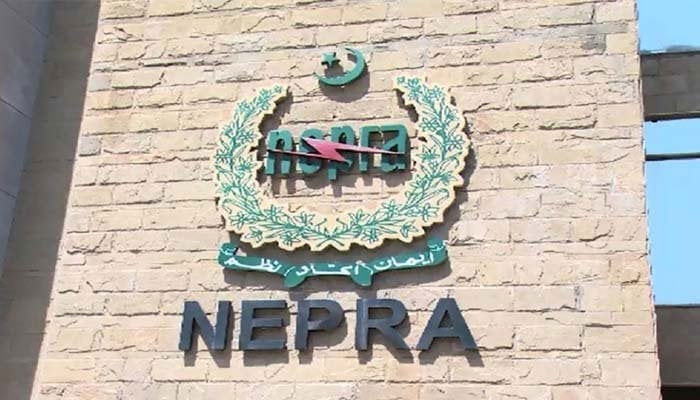Nepra releases NTDC integrated generation capacity expansion plan 2024
ISLAMABAD: The National Transmission and Dispatch Company (NTDC) has submitted to NEPRA the Integrated Generation Capacity Expansion Plan (IGCEP) 2024, outlining a strategy to address Pakistan's future energy needs until 2034.
Developed in compliance with the National Electric Power Regulatory Authority's (NEPRA) Grid Code, the plan encompasses a decade-long timeframe and aims to accommodate the country's increasing demand for electricity, including systems managed by NTDC and Karachi Electric (KE).
NEPRA published this report on Friday and sought the public and other stakeholders’ comments. The IGCEP 2024 is the culmination of a comprehensive study, leveraging sophisticated statistical and computational methodologies. It comprises two primary phases: load forecasting and generation capacity expansion, with a focus on dispatch optimization. Three scenarios, based on varying GDP growth rates, have been formulated to anticipate future energy requirements.
Utilizing cutting-edge generation planning
software, PLEXOS, the plan integrates existing and future power projects, policy frameworks, contractual obligations, and natural resource allocations. Sensitivity analyses have been conducted to assess different demand scenarios and potential project delays.
Key highlights of the plan include a significant emphasis on renewable energy sources, particularly wind and solar PV, to reduce reliance on imported fuels like coal and RLNG. By 2034, the base case scenario projects a substantial contribution from renewables, comprising 46 percent hydropower and 10 percent variable renewable energy. Moreover, the plan ensures sufficient capacity from various sources to meet hourly demand fluctuations, including intermittent renewable resources.
The IGCEP 2024 also advocates for structural reforms in the power sector, promoting distributed generation and local manufacturing of renewable energy technologies.
Additionally, it emphasizes the importance of data accessibility and targets for demand-side management and distributed generation.
To ensure cost-effectiveness, the plan stipulates that project costs approved by NEPRA must align with those considered in the IGCEP. Any discrepancies may necessitate project reevaluation.
However, the selection of projects in the IGCEP does not guarantee immediate execution, as they require approvals from relevant government authorities.
The release of the IGCEP 2024 marks a significant step towards achieving Pakistan's energy goals while fostering sustainability and cost-efficiency in the power sector.
-
 Jennifer Aniston Already Decided Her Wedding Dress?
Jennifer Aniston Already Decided Her Wedding Dress? -
 Prince Harry, Meghan’s Hollywood Party Drama Exposes Chaotic PR Strategy
Prince Harry, Meghan’s Hollywood Party Drama Exposes Chaotic PR Strategy -
 Jennifer Garner Reacts To Savannah Guthrie's Video As Search For Nancy Guthrie Continues
Jennifer Garner Reacts To Savannah Guthrie's Video As Search For Nancy Guthrie Continues -
 Bad Bunny Leaves Fans Worried With Major Move After Super Bowl Halftime Show
Bad Bunny Leaves Fans Worried With Major Move After Super Bowl Halftime Show -
 Captain Jason Talks Personal Hardships He Faced Ahead Of 'Below Deck' Season 4
Captain Jason Talks Personal Hardships He Faced Ahead Of 'Below Deck' Season 4 -
 Anti-monarchy Group Reacts To Prince William, Kate Middleton Statement On Epstein Scandal
Anti-monarchy Group Reacts To Prince William, Kate Middleton Statement On Epstein Scandal -
 Andrew 'must' Apologize Not Wider Royal Family For Jeffrey Epstein Links
Andrew 'must' Apologize Not Wider Royal Family For Jeffrey Epstein Links -
 Super Bowl 2026: Why Didn't Epstein Survivors Ad Air On TV?
Super Bowl 2026: Why Didn't Epstein Survivors Ad Air On TV? -
 'Harry Potter' TV Series Exec Teases 'biggest Event In Streaming': Deets
'Harry Potter' TV Series Exec Teases 'biggest Event In Streaming': Deets -
 Camila Mendes Finally Reveals Wedding Plans With Fiancé Rudy Mancuso
Camila Mendes Finally Reveals Wedding Plans With Fiancé Rudy Mancuso -
 Beatrice, Eugenie Blindsided By Extent Of Sarah Ferguson’s Epstein Links
Beatrice, Eugenie Blindsided By Extent Of Sarah Ferguson’s Epstein Links -
 Girl And Grandfather Attacked In Knife Assault Outside Los Angeles Home
Girl And Grandfather Attacked In Knife Assault Outside Los Angeles Home -
 Super Bowl Halftime Show 2026: What Did Trump Say About Bad Bunny?
Super Bowl Halftime Show 2026: What Did Trump Say About Bad Bunny? -
 Piers Morgan Defends Bad Bunny's Super Bowl Performance, Disagrees With Trump Remarks
Piers Morgan Defends Bad Bunny's Super Bowl Performance, Disagrees With Trump Remarks -
 Andrew Lands In New Trouble Days After Royal Lodge Eviction
Andrew Lands In New Trouble Days After Royal Lodge Eviction -
 Instagram, YouTube Addiction Case Trial Kicks Off In California
Instagram, YouTube Addiction Case Trial Kicks Off In California




